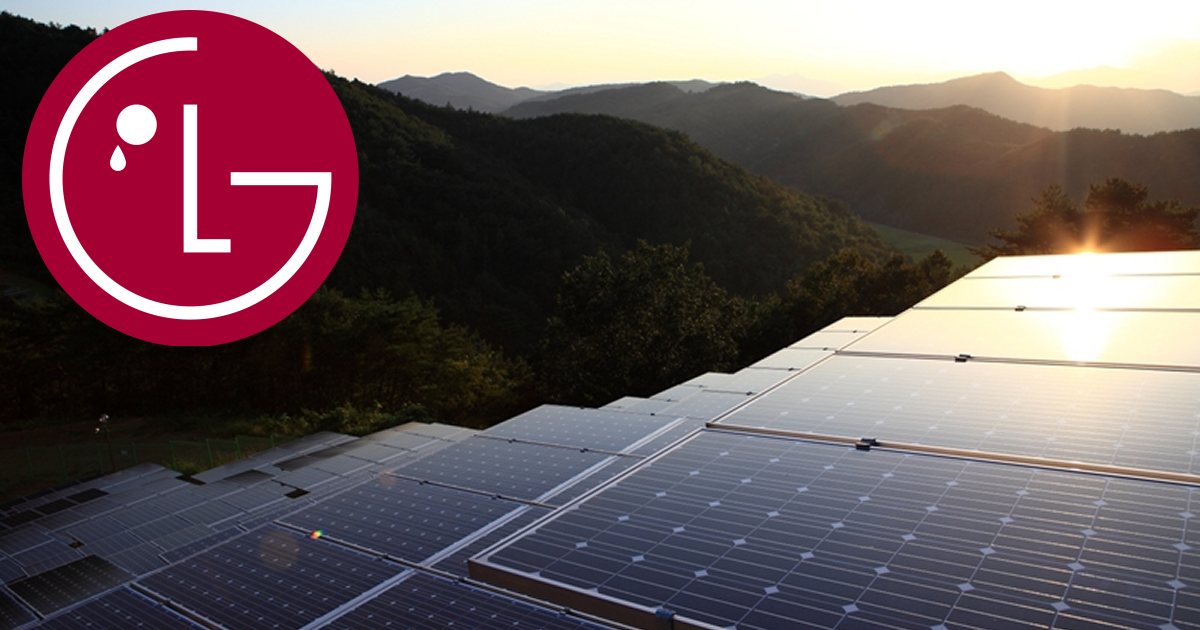
The pandemic appears to have taken another solar scalp. South Korea’s LG announced a short time ago it is ditching solar panel manufacturing globally.
The decision was made by LG’s board of directors in South Korea yesterday after a comprehensive review of the impact of rising material and logistics costs along with supply constraints on its solar business.
SQ spoke to a source at LG who said they only heard the news themselves a few hours ago – so the Australian team were probably as surprised as everyone else. While it was heard on the grapevine factories were going to be adjusting solar panel production levels, it turns out that level was zero.
LG solar panel production will wind down over the next few months before ceasing completely. As for current customers, the company says:
“LG stands behind its brand and will honor the limited warranty with each product sold.”
The Australian LG Energy web site similarly states:
“We will fully honour our warranty obligations in accordance with applicable regulations”
Our source at LG said the company was keeping “megawatts” of solar panels in warehouses for warranty claims in the future if needed. And for the most part, they might not be.
LG panels are well-regarded as being very robust, highly reliable and super-efficient, and backed by a 25-year product warranty – attributes reflected in pricing of LG solar panels.
LG solar panel reviews here on SolarQuotes from Australian customers have generally very favourable, scoring an overall average of 4.8 stars, and 4.9 stars over the last 6 months.
Costs Biting Hard
The increasing cost of polysilicon during the pandemic has received a lot of coverage, and while there is a bunch of production capacity coming online in the not-too-distant future, that doesn’t help LG now. Silicon prices started to drop towards the end of last year, but began creeping up again from the start of this year – although not to the highs of last year yet.
Increasing solar panel manufacturing costs aren’t just about silicon – for example, copper and aluminium are also heading north.
Beyond materials, there’s also the freight issue – both cost and availability. We mentioned in the latest SQ Australian Solar Prices report published yesterday freight rates for 40-foot containers increased from around an average of USD $1,446 in December 2019 to a peak of $10,839 in September last year. While it dropped back to $9,800 in January, that is still nearly seven times more than pre-pandemic.
The premium pricing of LG solar panels has been somewhat a barrier to sales, but here at SolarQuotes we’ve consistently seen significant interest in high-end systems. Our February auSSII report indicated 12% of Australian solar shoppers in January were wanting a “top quality” (most expensive) system – and we’ve seen that sort of figure over the years the auSSII has been published.
LG Battery Business To Stay
The company said it will remain in the renewable energy game, concentrating on “growth sectors” such as energy storage systems and home energy management. LG solar batteries have also been popular in Australia.
“While exiting the solar panel business, LG is concentrating on products and services that can have an even greater impact,” said LG Electronics North America president and CEO Thomas Yoon.
Growth sectors and even greater impact? Still sounds like solar to me, but anyhow. It’s a shame.

 RSS - Posts
RSS - Posts



This is pretty massive for the solar industry as a whole, when big players and top end players exit, it leaves room for the next level to step onto the podium, with no additional effort required.
Great news for SunPower, great news for whoever was next in line, but not so great news for the industry as a whole. Need to cull from the bottom up not the top down.
We just got a quote for LG panels when we heard about the factory closing. What a shame. We are now faced with a dilemma. Do we purchase these panels or look for alternatives.What about non warranty breakage?
Hi Baden
I would be fine with putting LG panels on my roof because I know they are good quality and — most importantly of all — very unlikely to ever require a warranty claim. LG is keeping stocks of old panels in the country so, hopefully, it will be possible to get replacements if necessary. But you may prefer to go with a manufacturer that’s still in the solar panel production game for extra peace of mind.